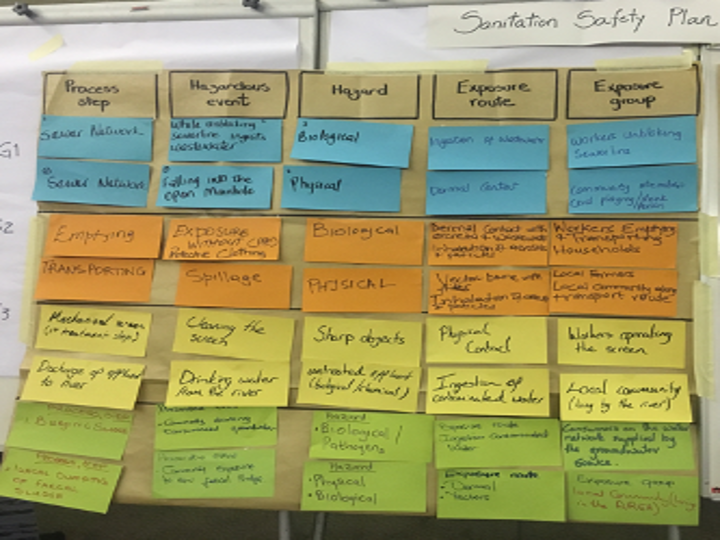WHO
Guidelines Training Strategy
WHO
Worldwide
Development and implementation of the WHO Guidelines on Sanitation and Health Training Strategy

Sanitation Safety Planning for the Polokwane Municipality in the Limpopo Region
Visit project page
Client
Chemonics
![]()
Beneficiaries
Citizens of the Municipality of Polokwane.
Key Partners
JG Afrika and Oxford Policy Management Limited (OPML)
Thanks to our long-time cooperation with the WHO promoting Sanitation Safety Planning (SSP) and training stakeholders, we got in touch with JG Afrika and Chemonics in Southern Africa. As a result, they started the USAID Resilient Water Program. The Resilient Waters Program aims to build more resilient and water secure Southern African communities and ecosystems through improved management of transboundary natural resources and increased access to safe drinking water and sanitation services.
As part of the program, the Resilient Waters Program team committed to developing a National Faecal Sludge Management (FSM) Strategy for South Africa, using the pilot project to improve FSM in Polokwane Local Municipality as a solid evidence base.
According to the recommendations provided by the World Health Organization (WHO) in its 2018 Guidelines on Sanitation and Health, sanitation systems and services should be selected according to the local context, and investments should be based on local risk assessments, i.e. Sanitation Safety Planning, along the entire sanitation chain.
As Sanitation Safety Planning experts, we are in charge of supporting the implementation of the WHO recommended SSP local risk assessment and management approach in Polokwane. As the SSP facilitators, our contribution is:
Explore and discover
Co-create and design
Empower
Design and conduct an online training and coaching program to build the capacity of the members of the Polokwane SSP team.
Reach and connect
Facilitate a high-level SSP session within the “Building Urban Resilience through Sanitation Management” workshop that took place in South Africa from the 21st to the 23rd of August 2019.
If you are planning or already implementing a sanitation project, don’t forget to select and invest in systems and services that respond to the local context based on local level risk assessment, i.e. Sanitation Safety Planning. Contact us to work together to ensure that your sanitation project responds to the highest health risk first!
Contact us